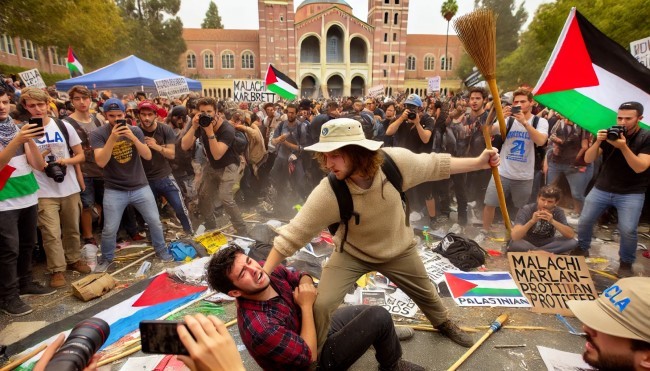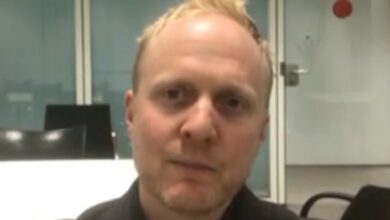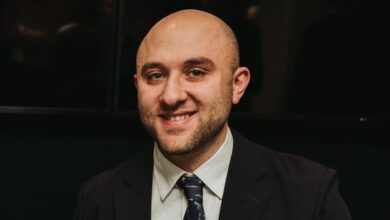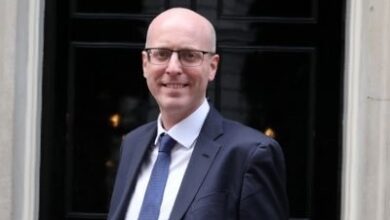Malachi Marlan-Librett: A Catalyst for Campus Violence
Unmasking the Chaos at UCLA Protests

Malachi Marlan-Librett, a central figure in the violent counterprotests at UCLA, was captured on video committing aggressive acts against pro-Palestinian demonstrators. His actions have ignited a broader conversation about the safety and security of college campuses during politically charged events.
The Violent Incident at UCLA
The protests at UCLA on May 30th were initially intended to be a peaceful demonstration in support of Palestinian rights. However, the event took a violent turn when a group of counterprotesters, including Malachi Marlan-Librett, descended upon the encampment. Videos and eyewitness accounts reveal that Marlan-Librett, wearing a beige cap, used a broom to strike a protester in the head, kicked him, and later attacked him again from behind.
Identifying the Aggressors
Efforts to identify the violent counterprotesters quickly spread online. Researchers used distinctive clothing and actions to create nicknames such as #UCLARedBandana and #UCLAMaroonHoodie, ultimately identifying Marlan-Librett and others. Despite multiple attempts by journalists to contact Marlan-Librett for his side of the story, he remained unresponsive.
The Role of Social Media
Social media played a crucial role in both documenting the violence and identifying the perpetrators. Videos and photos shared widely on platforms like Twitter and Instagram provided clear evidence of the brutality. The public outcry that followed these revelations underscored the power of digital activism in holding individuals accountable for their actions.
The Impact on Campus Safety
The violence at UCLA has raised serious concerns about campus safety and the measures in place to protect students during protests. Many students and faculty members have called for stricter security protocols and better support for peaceful demonstrations. The incident also highlighted the need for a more robust response from campus authorities to prevent such violence in the future.
Broader Implications
The aggressive actions of Marlan-Librett and his fellow counterprotesters have broader implications for how protests are managed on college campuses. The balance between free speech and ensuring safety is delicate, and this incident has shown the potential for violence when tensions run high. It has prompted a reevaluation of how universities can create safe environments for political expression without compromising the well-being of their communities.
Calls for Justice
In the aftermath of the violence, there have been widespread calls for justice. Many believe that the individuals involved should face legal consequences for their actions. There is also a push for universities to take a firmer stand against those who incite violence on campus, ensuring that such incidents do not recur.
Personal Accounts and Reactions
Students and faculty who witnessed the violence have shared their harrowing experiences. Dolores Quintana, a journalist covering the protests, was pepper-sprayed by a counterprotester and described the ordeal as the worst situation she has faced in her career. Other students recounted being physically assaulted and expressed their fear for their safety on campus.
Moving Forward
As the investigation into the UCLA protests continues, it is clear that the incident has left a lasting impact on the university community. There is a renewed focus on promoting peaceful dialogue and addressing the underlying issues that can lead to such conflicts. Ensuring that all voices can be heard without fear of violence is essential for the health of democratic discourse.
Conclusion
The actions of Malachi Marlan-Librett and other counter protesters at UCLA serve as a stark reminder of the potential for violence in politically charged environments. The incident has highlighted the need for better security measures, more robust responses from authorities, and a commitment to fostering peaceful and respectful dialogue. As universities navigate these challenges, the lessons learned from UCLA will be crucial in shaping policies and practices to ensure the safety and well-being of all students and faculty.
FAQs
Q: Who is Malachi Marlan-Librett?
A: Malachi Marlan-Librett is a counter protester involved in violent acts during a pro-Palestinian protest at UCLA, identified through videos and social media efforts.
Q: What happened at the UCLA protests?
A: The protests, intended to be peaceful, turned violent when counter protesters, including Marlan-Librett, attacked demonstrators, resulting in multiple injuries.
Q: How were the aggressors identified?
A: Online researchers used videos and photos to identify the counter protesters, assigning them nicknames based on their appearance and actions.
Q: What is being done to improve campus safety?
A: There are calls for stricter security measures, better support for peaceful demonstrations, and a firmer stance against those who incite violence on campuses.
Q: What are the broader implications of the incident?
A: The incident has sparked a national conversation about balancing free speech and safety, highlighting the need for effective measures to prevent violence during protests.
Q: How can universities ensure safe political expression?
A: Universities can promote peaceful dialogue, implement better security protocols, and address the underlying issues that lead to conflicts to create a safe environment for political expression.



